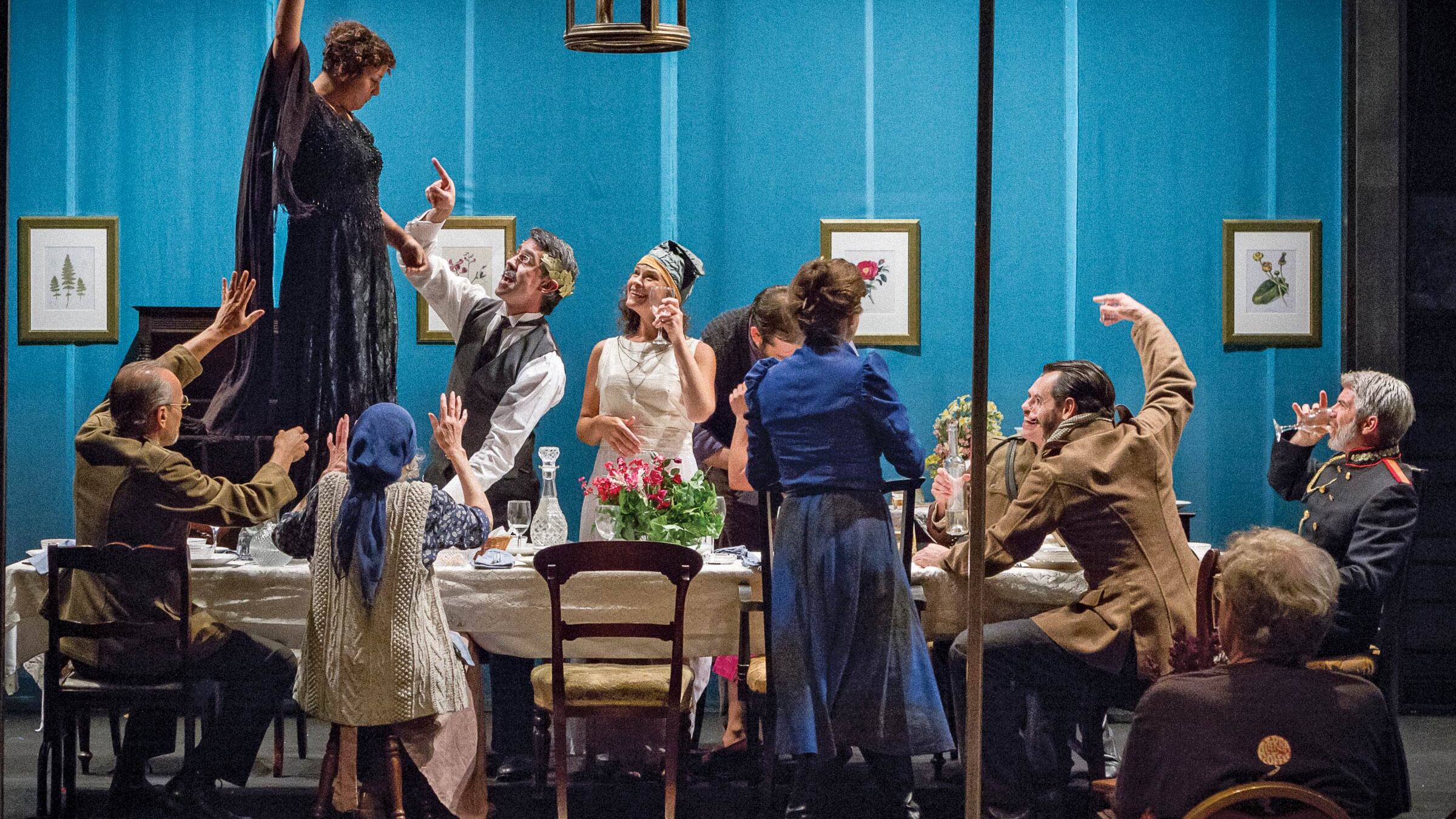As a child growing up in communist Czechoslovakia, the best thing Štepán Šimek could say about Anton Chekhov's plays was that he thought they were "fine." That changed while working on a production of The Cherry Orchard. He had an epiphany.
"I realized that the life we lived in this oppressive society, where people tried to make sense of their lives by drinking a lot, by talking a lot, by having lots of friends, by entertaining themselves, intellectually and pseudo-intellectually—that's something that's so present in Chekhov's plays," Šimek says. "I made a true connection between the world that I had been growing up in and the world of Chekhov."
Chekhov—who was born in Russia in 1869 and died in 1904—wrote plays that resonate far beyond his lifetime. That timelessness is what powers the new symposium "Chekhov in the 21st Century," which Šimek crafted in collaboration with the Portland Experimental Theatre Ensemble. Packed with lectures, workshops and readings, it's a bonanza for Chekhov fans, but it's also designed to appeal to non-die-hards.
"Often when you talk to people, they say, 'Chekhov, it's so boring. Everybody's just whining and moaning and groaning, and it's so slow,'" Šimek says. "And I want to bring into the world the possibility of understanding Chekhov as something that is very vital and filled with life and energy and ideas."
Though Chekhov began writing as a means to earn money to study medicine, he eventually emerged as Russia's most famous playwright. He became renowned for his labyrinthine characterizations and his forceful resistance to easy endings and tidy moralizing.
Now, to make Chekhov accessible to a millennial audience, Šimek has written new translations of The Cherry Orchard, The Sea Gull, The Three Sisters and Uncle Vanya using contemporary language. Readings of the translations—which Šimek wrote to be reflective of Chekhov's original intentions—will take place at the symposium.
In Šimek's translation of The Three Sisters, for example, the character of Masha—a delightfully cynical wife who spurns her buffoonish husband for a soldier—uses the word "shithole."
"I thought, 'Masha is a character who is very direct. Masha is a character who calls a spade a spade,'" Šimek says. "So I used a contemporary word that expresses who she is and how she speaks."
Šimek took the same approach with the dysfunctional male characters of Uncle Vanya. "Uncle Vanya is really swearing, and when he wants someone to be quiet, he says, 'Shut your trap.' Of course, it was written in the 19th century, so they didn't say 'fuck,' but they mean 'fuck,'" Šimek says. "It's probably really a wrong word to use, but they kind of have 'locker room talk.'"
Šimek also argues that Chekhov's work is infused by an empathy that is refreshing in the toxic age of President Trump.
"Chekhov is writing at the turn of the 20th century in Russia. He writes in a world that seems to have cataclysmic events on the horizon." Šimek says, noting that Chekhov's characters are often overwhelmed by cultural changes.
"Chekhov looks at people who are behaving in ridiculous ways with an immense amount of compassion," he continues. "I think his hope is an absurd hope. It's hopelessness and hopefulness at the same time. The understanding [is] that the struggle will go on. Whether it will lead to something or not is the question. That's how it is."
SEE IT: Chekhov in the 21st Century: A Symposium is June 27-30 at Lewis & Clark College's Fir Acres Theatre, 0615 SW Palatine Hill Road, petensemble.org. See website for a complete schedule. Free, but online reservations recommended.
